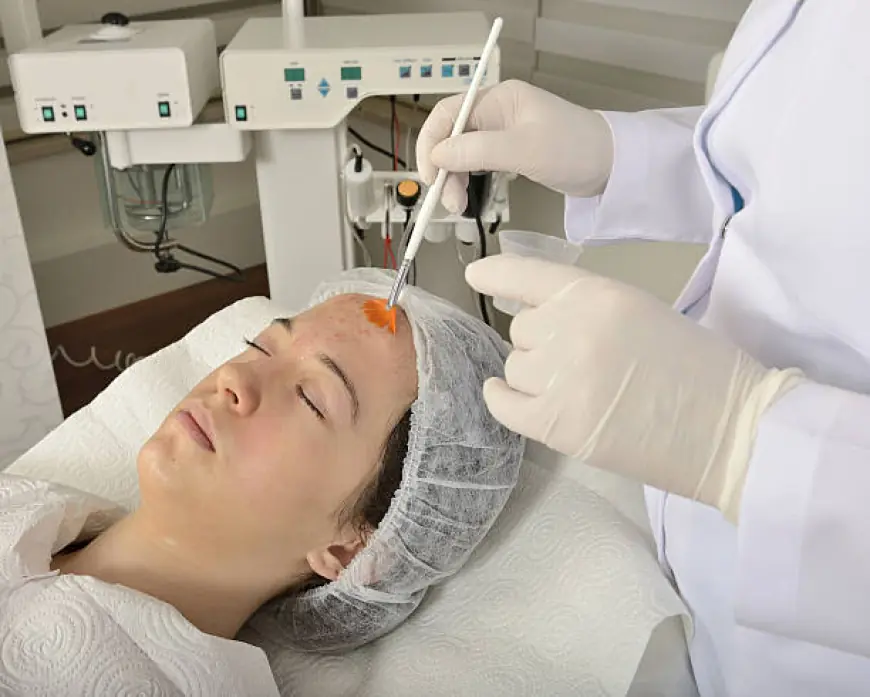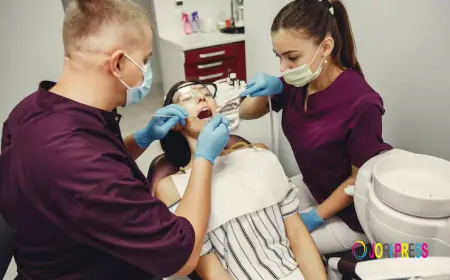Glycolic vs. Salicylic Chemical Peels in Riyadh: Which One is Better?
To select the best peel, consider your skin type, concerns, and goals. Consultation with a skincare specialist is recommended to tailor the treatment to your needs.

When it comes to achieving healthier, clearer, and more radiant skin, chemical peels have become a popular solution. Among the various options available, glycolic and salicylic acid peels stand out as two of the most effective treatments. Both have unique benefits and are favored for different skin concerns. If you’re considering a skin rejuvenation treatment but unsure about which peel to choose, understanding the differences, benefits, and suitability of these two acids can help you make an informed decision.
Understanding Chemical Peels and Their Benefits
Chemical peels involve the application of an acid solution to the skin, which exfoliates the outer damaged layers and encourages new skin growth. This process can help reduce acne, pigmentation, fine lines, and uneven skin texture. In Riyadh’s dynamic skincare market, chemical peels in Riyadh have gained traction due to their ability to address a range of skin concerns in a non-invasive way. Whether you are dealing with acne scars, sun damage, or simply looking to brighten your complexion, chemical peels offer customized treatments for your needs.
What is Glycolic Acid Peel?
Glycolic acid is an alpha-hydroxy acid (AHA) derived from sugar cane. It is known for its small molecular size, which enables it to penetrate deeply and work on exfoliating dead skin cells effectively. Glycolic acid peels are primarily celebrated for their ability to improve skin texture, reduce fine lines, and treat hyperpigmentation. The peel stimulates collagen synthesis, which helps maintain skin firmness and elasticity, making it a preferred choice for aging or dull skin.
What is Salicylic Acid Peel?
In contrast, salicylic acid is a beta-hydroxy acid (BHA) that is oil-soluble. This characteristic allows it to penetrate pores deeply and exfoliate inside the follicle, making it particularly effective for oily and acne-prone skin. Salicylic acid peels help in reducing excess sebum production, unclogging pores, and calming inflammation associated with active acne. This makes salicylic acid a top recommendation for those struggling with persistent breakouts or blackheads.
Key Differences Between Glycolic and Salicylic Chemical Peels
Skin Type Suitability
Glycolic acid peels are ideal for normal, dry, and sensitive skin types, as they gently exfoliate and brighten the skin without excessive drying. Meanwhile, salicylic acid peels suit oily and combination skin, especially those prone to acne, due to their ability to dissolve oil and reduce inflammation.
Targeted Skin Concerns
-
Glycolic acid works best for uneven skin tone, sun damage, fine lines, and hyperpigmentation.
-
Salicylic acid is particularly effective in treating acne lesions, congested pores, and reducing redness and swelling.
Mechanism of Action
Glycolic acid works predominantly by loosening the bonds between dead skin cells on the surface, encouraging their removal. Salicylic acid penetrates deeper by breaking down oily debris inside pores, leading to clearer skin from within.
Effectiveness of Glycolic vs. Salicylic Chemical Peels in Riyadh
Studies and clinical experiences suggest both peels are highly effective, but their suitability depends on your skin’s condition. For mild to moderate acne, salicylic acid peels generally show faster and more sustained improvement due to their anti-inflammatory and oil-controlling properties. Glycolic acid peels effectively reduce uneven pigmentation, texture irregularities, and promote collagen formation, making them ideal for skin resurfacing and anti-aging goals.
In the context of chemical peels in Riyadh, many prefer salicylic peels for younger or oily skin types with active acne, while glycolic peels are favored for mature skin or those focused on skin brightening and texture improvement.
What to Expect During the Treatment
Chemical peels are usually administered in a clinical setting by a trained skincare professional. The acid solution is applied evenly on the cleansed skin and left for a specific duration depending on skin tolerance and peel strength. You might feel a mild tingling or warmth during the process. Aftercare is crucial to manage peeling, redness, and to protect the renewed skin with hydration and sun protection.
Benefits of Choosing Chemical Peels
-
Improve skin tone and texture
-
Reduce acne and minimize pores
-
Lighten hyperpigmentation and dark spots
-
Stimulate collagen for firmer skin
-
Minimal downtime compared to more invasive procedures
Potential Side Effects and Precautions
Both glycolic and salicylic peels are generally safe when performed by professionals; however, side effects may include redness, mild irritation, and peeling. It’s essential to avoid sun exposure and follow prescribed skincare routines after treatment to optimize results and prevent complications. Always disclose your medical history and skin sensitivities to your skincare provider before undergoing a chemical peel.
Choosing the Right Peel For You in Riyadh
To select the best peel, consider your skin type, concerns, and goals. Consultation with a skincare specialist is recommended to tailor the treatment to your needs. You might also explore combining both peels over multiple sessions if you have mixed concerns like oily skin with pigmentation.
FAQs
How many sessions of chemical peels are needed for visible results?
Typically, multiple sessions (3-6) spaced a few weeks apart are recommended to achieve optimal skin improvement, depending on peel depth and skin condition.
Can chemical peels be done on sensitive skin?
Yes, but milder acids like low-concentration glycolic peels are preferable, and a patch test is often advised.
Are chemical peels safe during summer in Riyadh?
Extra caution is needed during sun-intense months. Strict sun protection and aftercare are essential to avoid pigmentation issues.
Can chemical peels treat acne scars effectively?
Chemical peels help improve mild to moderate acne scars by promoting skin cell turnover and collagen production, but deeper scars may require additional treatments.
Book your appointment Today
If you are ready to enhance your skin’s health and appearance, consider professional chemical peels in Riyadh at Enfield Royal Clinic. Our expert team provides personalized treatment plans tailored to your skin’s unique needs, ensuring safe and effective results. Book your appointment today to experience the transformative benefits of chemical peels and reveal radiant, youthful skin.
What's Your Reaction?
 Like
0
Like
0
 Dislike
0
Dislike
0
 Love
0
Love
0
 Funny
0
Funny
0
 Angry
0
Angry
0
 Sad
0
Sad
0
 Wow
0
Wow
0

















































